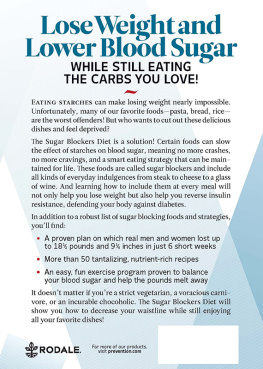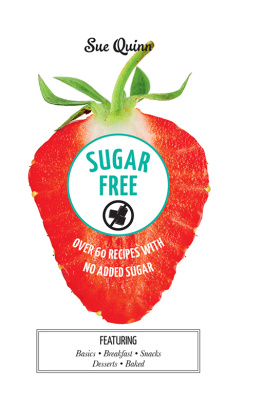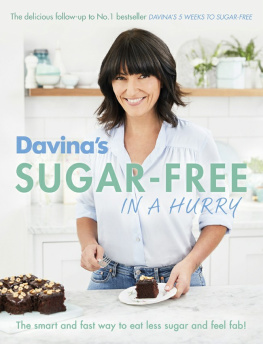First published in 2014 by Erin Rose Publishing
Text and illustration copyright 2014 Erin Rose Publishing
Design: Julie Anson
ISBN: 978-0-9928232-3-8
A CIP record for this book is available from the British Library.
All Rights Reserved. No part of this publication may be reproduced, stored in a retrieval system or transmitted by any form or by any means, electronic, recording or otherwise without the prior permission in writing from the publishers. Unauthorised reproduction of any part of this publication by any means including photocopying is an infringement of copyright.
DISCLAIMER: This book is not intended as a substitute for the medical advice of physicians. The reader should regularly consult a physician in matters relating to his/her health and particularly with respect to any symptoms that may require treatment, diagnosis or medical attention.
Some of the recipes in this book include nuts. If you have a nut allergy its important to avoid these. The author and publisher disclaim responsibility for any adverse effects that may result from the use or application of the recipes and information within this book.
CONTENTS
If giving up sugar was so easy wed all have done it by now!Ive ditched the cakes and chocolate and I still cant lose weight!
Those were the words of a frustrated friend in response to the latest media coverage on obesity, the modern epidemic endangering our lives. Does this sound familiar? Sure it does. Shes not alone in her despair, because despite making healthy changes to her diet and lifestyle, she still wasnt able to feel energetic or shift the belly bulge.
Its easy to be overwhelmed by all the information about fat, sugar and nutrition out there and not know which way to turn to improve your diet and wellbeing. Its easy to take things at face value, and believe that what we are being told is healthy is just that, but there is so much conflicting advice, its little wonder were confused about what to eat! It can be demoralising to try so hard and get nowhere; all the while the effects of too much sugar are keeping you trapped in a cycle of cravings and fluctuating moods. The brain fog caused by sugar makes it a struggle for basic things to make sense, the fatigue shakes your willpower, and weight gain and anxiety plummets your self-esteem, propelling you to seek comfort in food.
If youre really ready to change your life for the better then this Quick Start Guide to a Sugar-Free Diet is the perfect place to begin.
The news that not all fats are bad and that sugar can actually be far worse for our health has finally filtered through to the masses, and were now seeking the tools to help us kick the sugar habit and make the changes that put us on the path to good health and wellbeing.
This Quick Start Guide takes a comprehensive approach to understanding sugar and its effect on your body, and provides simple steps to eliminating it for good. The idea of cutting sugar out of your life will obviously feel daunting at first, but once you take the first step forward you will quickly shift from feeling OK (or maybe even feeling OK is an exaggeration) to feeling great. And the best bit is; its YOU that makes the difference!
No more highs and lows: bursts of energy and clarity, quickly followed by lethargy, anxiety and unexplained depression. Sound familiar? Or perhaps youre just sick and tired of feeling sick and tired?
This isnt just about turning down dessert or avoiding the obvious sugar traps, but it is about identifying the sneaky harmful sugars which are in so many apparently healthy savoury foods. Would you really be so quick to buy those low-fat yogurts if you realised that they actually contain double the amount of sugar than a regular one?
By following the guidelines in this book you can lose weight, improve your health, increase your energy levels and unleash the fitter and calmer you.
Are you ready? Lets go!
The Bitter Truth
Sugar affects us all in many different ways, and symptoms that you may have assumed were unrelated could actually be caused by the everyday sugar you are currently consuming.
This list isnt for medical diagnosis, but it is an indicator of the different ways fluctuating blood sugar levels could be affecting you. Before changing your diet, you should consult your doctor to find out if there is an underlying cause. If your symptoms are unexplained, it would be incredibly beneficial to take steps to cut out sugar. You dont need to be obese or even fat to be experiencing blood sugar problems. Or perhaps you are already further down the line than that. Have you already been diagnosed with diabetes?
Inability to lose weight
Tiredness after eating
Irrational when hungry
Craving sugar, sweets and carbohydrates
Panic attacks and unexplained anxiety
Depression (crying spells)
Poor memory
Brain fog, difficulty concentrating
Light-headedness
Heart palpitations and tachycardia (rapid heart rate)
Insomnia
Shaking
Irritability
Desire for stimulants like caffeine, chocolate or cigarettes
Excessive sweating
Cold extremities and numbness
Fatigue
Excessive thirst
Sudden tiredness and inability to concentrate
Visual disturbance
Sugar is bad for the heart, even in healthy people.
Excessive sugar consumption leads to high blood pressure and increases the risk of heart disease and strokes.
According to an NHS Diabetes Audit, diabetics are 48% more likely to have a heart attack.
Its responsible for increased yeast infections like thrush.
Ferments in the gut causing wind, bloating and diarrhoea and IBS symptoms.
Its been linked to fertility problems.
A Netherlands university study showed higher levels of glucose lead to looking older, due to slower collagen production.
It has been linked with dementia, as continual high blood sugar damages blood vessels and reduces oxygen to the brain.
Recent studies suggest that those with high blood sugar are more likely to develop cancer of liver, bowel, breast and pancreas.
It can cause fatty liver disease. If insulin is less effective, sugar gets stored as fat in the liver, and as we become less sensitive to insulin, it heightens the risk of type 2 diabetes.
It can cause migraines and headaches due to sleep irregularities from sugar consumption.
In basic terms, when we eat, carbohydrates are digested and absorbed as sugar which is taken up in the blood, and either used immediately or stored as glycogen. Insulin is secreted by the pancreas relative to the bodys blood sugar levels to allow the glucose into the cells. Low insulin results in the diminished ability to control sugar levels, leading to high blood sugar. Its like a pendulum effect, and its important to avoid large swings in blood sugar. A rapid rise will result in more insulin being secreted and can cause a rapid low, with some pretty unpleasant symptoms.
The pancreas and adrenals eventually become exhausted, resulting in further declining insulin levels, leading to high blood sugar and diabetes. But lets not get carried off on a negative wave here. You can get off the rollercoaster ride of spiking sugar levels. The aim is to keep it in the middle, avoid extremes and learn to relax more.
PRE-DIABETES
Pre-diabetes is often a precursor to the onset of Type 2 Diabetes. This can manifest as borderline sugar levels. If this is picked up soon enough, it can mark the turning point, and dietary and lifestyle changes can turn things around and prevent the condition from getting worse.
Next page














